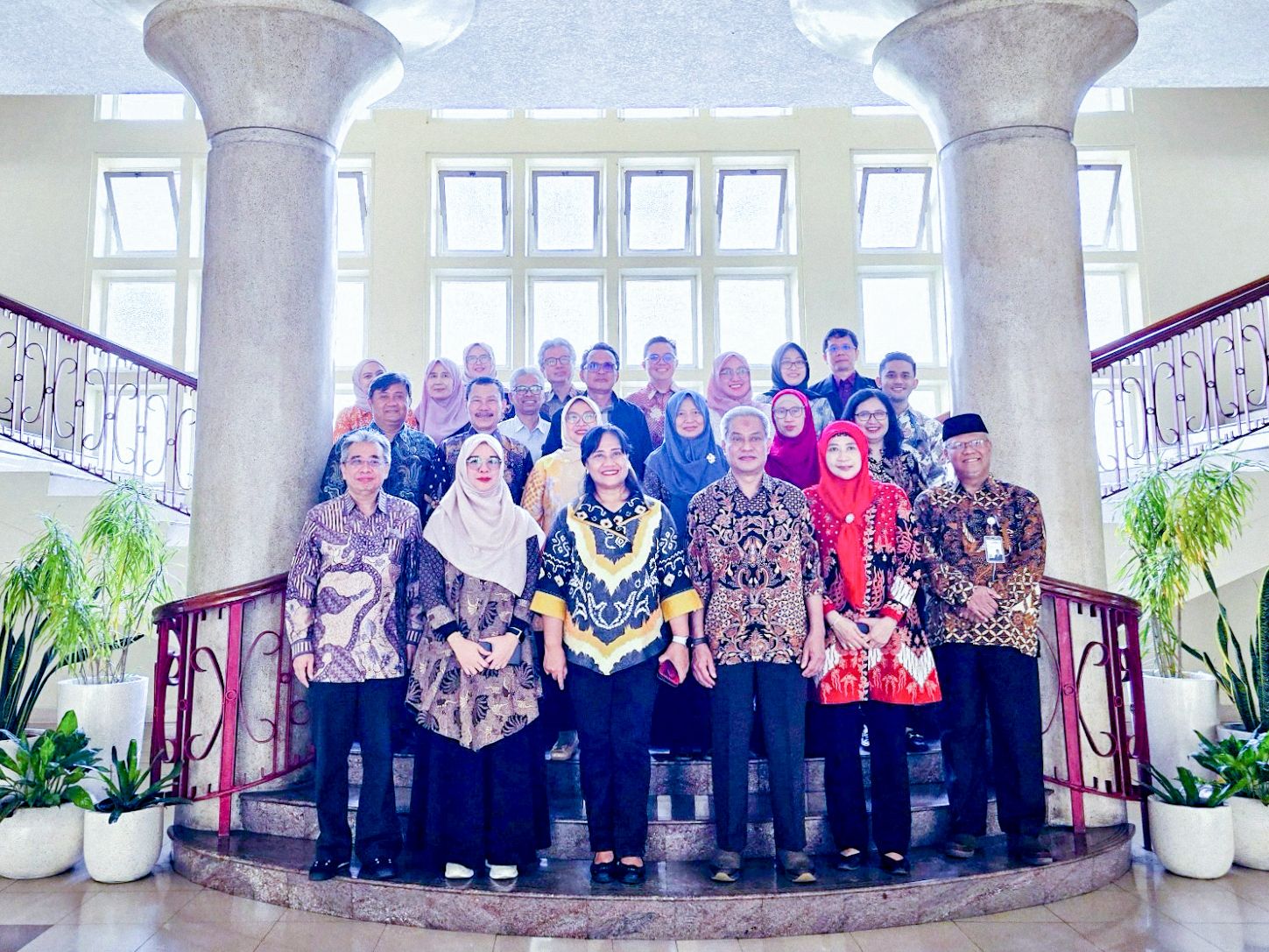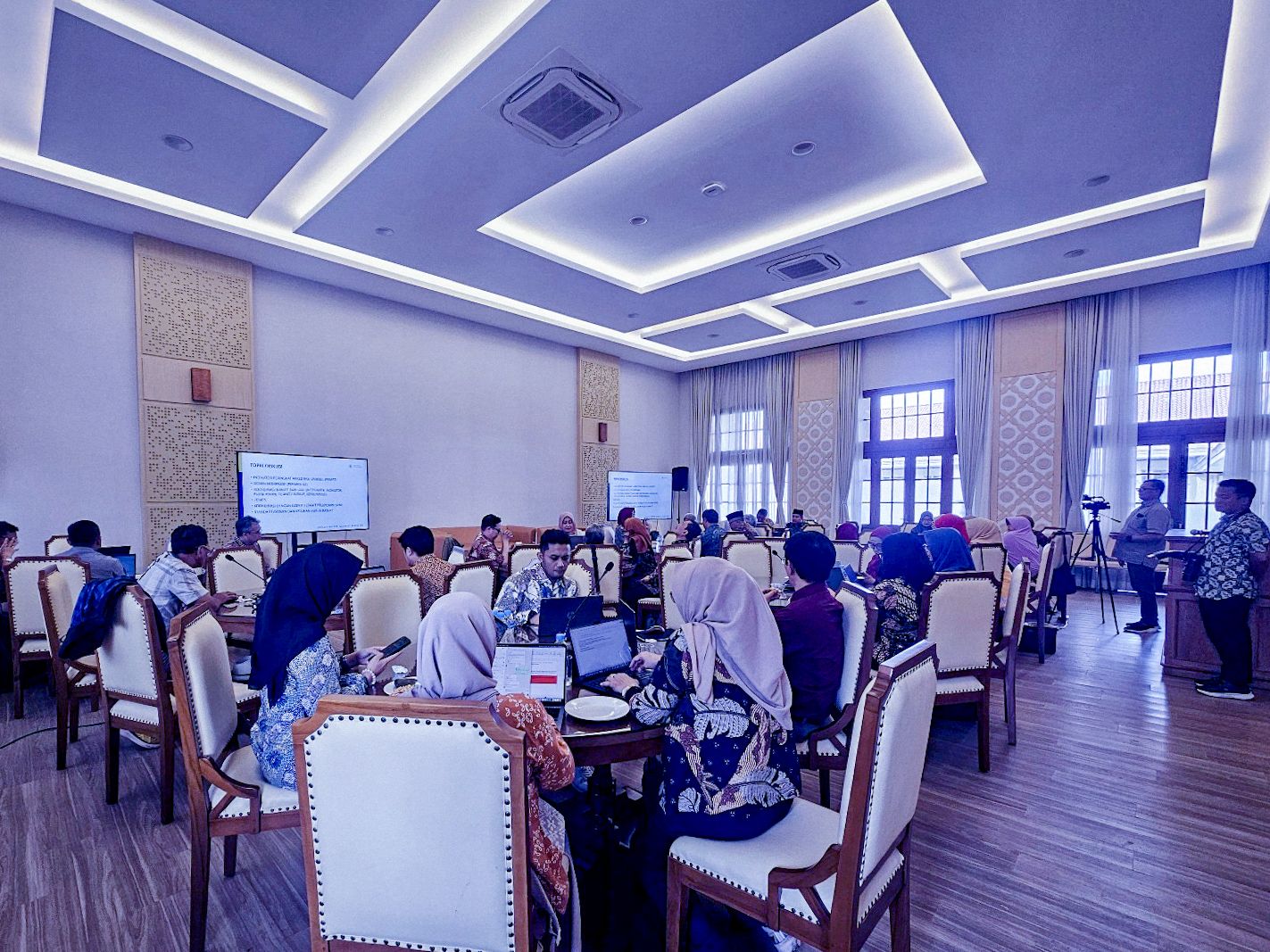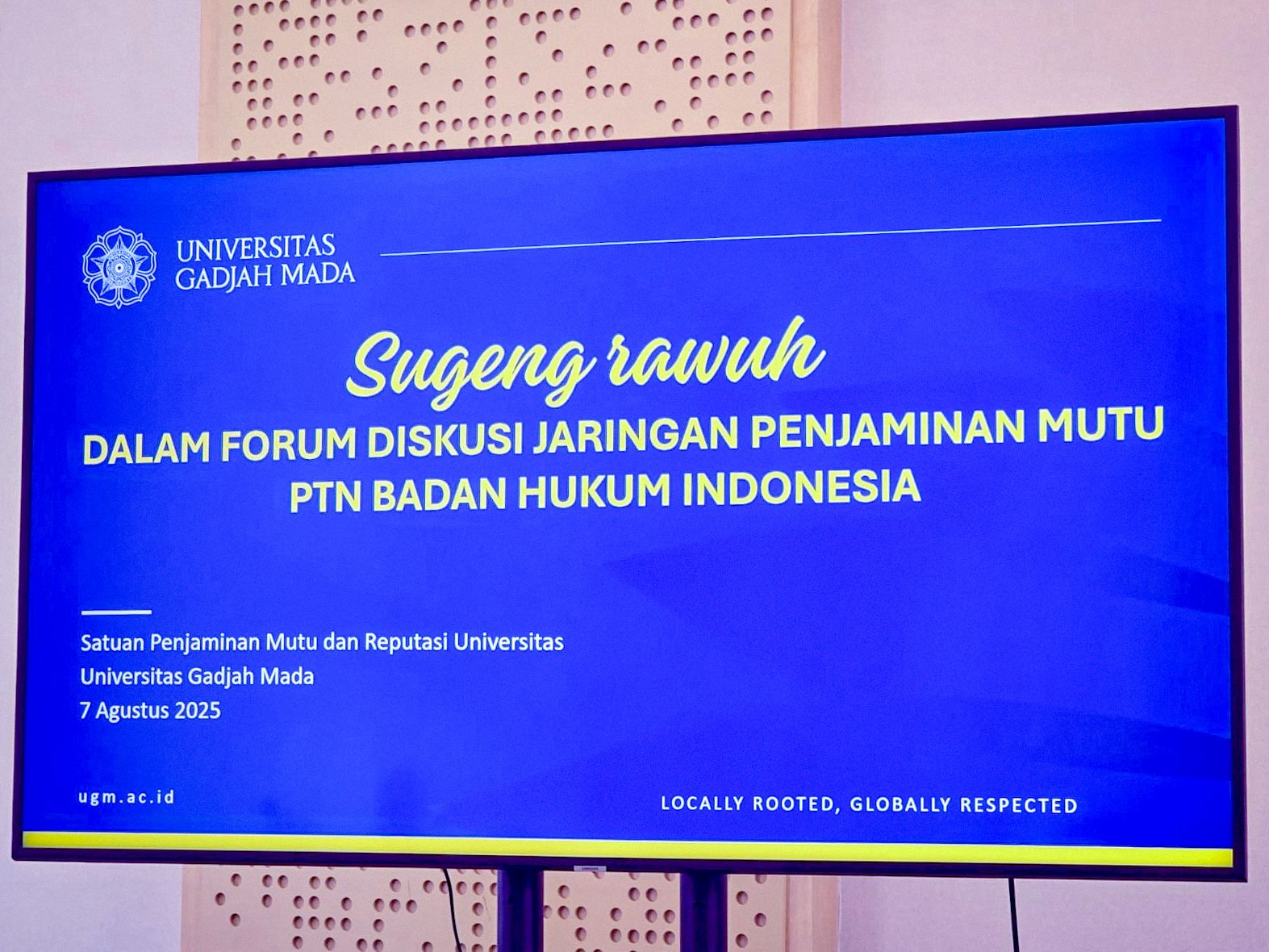August 7, 2025 | Contributor: Yusuf Anbar Firdausi | Editor: Regiani Yunistika

Yogyakarta, August 7, 2025 – UIII sent two delegates to the discussion forum of Jaringan Penjaminan Mutu Perguruan Tinggi Badan Hukum (JPM PTN-BH), which was held on Thursday, August 7, 2025, in the Multimedia Room of the Universitas Gadjah Mada Rectorate Building, Bulaksumur, Yogyakarta, and attended by quality assurance units from PTN-BH universities across Indonesia. This forum discussed several issues linked to university quality assurance, and out of those concerns, recommendations were made throughout discussion. One of the most prominent subjects covered was the accreditation status of higher education and study programs.
The discussions were divided into two sessions: a discussion session for all attendees and a group work session. The primary topic highlighted in the forum was the lack of uniformity in the standards of Lembaga Akreditasi Mandiri (LAM) outside the National Accreditation Board for Higher Education (BAN-PT). Dr. Widowati Budjiastuti from Universitas Negeri Surabaya explicitly stressed the constantly changing nature of standards at LAM leading to confusion among office of quality assurance across higher education institutions. Prof. Mohammad Imam Farisi from Universitas Terbuka shared concern that the complexity of study program accreditation, which uses 5 different accreditation institutions and, combined with the varying standards from each LAM, has resulted in an enormous challenge for the Quality Assurance Unit at universities. This led to a key recommendation for BAN-PT to standardize the “Superior” criteria across all LAMs and to enforce transparency in their fee structures. Furthermore, a proposal was made for highly reputable universities to be allowed to conduct self-evaluations, with LAMs only accrediting a sample of their programs.

The growing concern that the “Superior” predicate would be removed from accreditation and that the accreditation outcomes would merely distinguish between accredited and non-accredited institutions was another topic covered in the conversation. Many were having different perspectives on this scheme, particularly for nationally-recognised universities, gathered as PTN-BH. Prof. Indra Wijaya Kusuma of Universitas Gadjah Mada emphasized the significance of “Superior” instruments for top universities to preserve the caliber of education, and that losing their “Superior” status could raise the likelihood of demotivation. The forum collectively proposed specific quantitative criteria to define this “Superior” status, including limits on non-permanent lecturers (max 20%) and those without functional positions (max 10%), alongside targets for graduation rates (≥40% on-time) and the proportion of programs with “Superior” or international accreditation (min 40%).

The inadequate service that BAN-PT offered was another problem that surfaced throughout the constructive dialogue. Dr. Sudarno from Universitas Diponegoro underlined the BAN-PT helpdesk’s delayed response via the Accreditation Correspondence Administration System (SAPTA BAN-PT). Professor Nurul Barizah of Universitas Airlangga suggested outsourcing or bringing on more staff to handle correspondence services. The formal recommendations from the forum included a request for BAN-PT to establish a clear Standard Operating Procedure (SOP) for responses and to enhance the SAPTA system to allow for better tracking of communications.